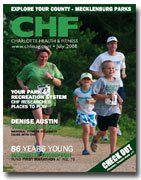
Don’t be S.A.D.
By Tim Long
S.A.D. - One of the most effective acronyms out there. You understand or at least recognize its meaning even without knowing exactly what it stands for: Seasonal Affective Disorder, generally, symptoms of depression caused by the lack of sunlight during the winter months. Not a cheerful topic, but a problem that might be more common than you may have thought. You may even suffer from it without knowing why and just brush it off as “winter blues”.
It doesn’t matter whether you are an active person, who exercises every day or an inactive person. S.A.D. can affect anyone. How many times have you driven to work in the morning darkness, sat under artificial lighting in the office, and then driven back home in what seems to be the same darkness in which you began your day? It’s depressing just thinking about it. Read on if you want to learn a bit more about why you may feel a little ‘blah’, irritable, or just plain unhappy for no apparent reason and want to find out what can be done to help you get through these shorter days.
As we approach the shortest day of sunlight during the year, December 21st, wade through the often hectic holiday season, and settle into the cold, dark months of January and February, many of us may fall into the rut of S.A.D. symptoms like:
· Depression
· Irritability
· Lowered physical activity
· Lethargy
· Food cravings (especially carbohydrates)
· Anxiety
· Inability to concentrate
Researchers speculate on the causes, but no one knows for sure why moods change with seasons. Some possible causes (summarized from research done by the Mayo Clinic and the American Psychiatric Association) include:
· Increase production of melatonin - an internal clock hormone, which increases in production in darkness and is limited by light. Increased melatonin can affect the biological clock, causing laziness, sleepiness and dips in mood (not fun things to have in the middle of your day at work or when you’re trying to get motivated to get out for a walk or go to the gym).
· Decrease production of serotonin – a chemical in the brain that may positively affect mood and can be reduced by lack of sunlight.
· Changes in the circadian rhythm – the body’s natural feature that regulates the internal clock (tells you when to be tired, alert, wakeful and to sleep) that can be thrown out of whack by the limited number of sunlit hours and the growing number of dark hours in late fall and winter.
“I don’t want S.A.D.!”
What can we do to fight off Seasonal Affective Disorder?
There are many publicized suggestions for treatment, ranging from light therapy (most common) to medication. Other recommendations are: get outside while it’s daylight, take a walk at lunch, keep up with your social circles, learn how to deal with stressful situations that may cause your mood to drop, talk to your doctor about it, but do something. Don’t just curl up in your own little world and hope for summer to get here.
Exercise and diet are great mood stabilizers. It doesn’t matter whether you walk for 45 mins or cycle for three hours. It all helps by increasing your fitness level, raising your self esteem, and softening the edge of stress. Taking care of yourself physically gives you the defenses you need to survive the winter months with a smile on your face.
Some tips on sticking to a routine even when your mood is drooping during the winter: lay out your exercise clothes every night for the next day (whether they are walking shoes or a multi-colored, fancy gym outfit), schedule the time of your exercise into your daily plan every morning, register for an organized event (there are many events for runners, walkers, cyclists, hiking, etc.). Having an event on your calendar is a great motivator to get out and get ready for it. Set weekly goals. “I’m going to walk 18 miles this week.” “I’m going to hike up Crowders Mountain this Saturday.” Short and long term goals help you focus on something other than the current lack of daylight.
If you think you are affected by S.A.D., talk to your doctor. It can be a serious risk to you, so take steps (literally and figuratively) to alleviate it.






2 comments:
Running is how I fight the winter blues. I love running on the cold weather. Even running in the dark can be an amazing experience. Running the trails when it is completely dark outside is unreal. I also find that when I do not exercise I am very irritable. At least, that is what my family tells me. :)
Thanks for the comment, JP. I agree that you can have a great time running, walking and cycling in the night as long as you have some good lights!
Post a Comment